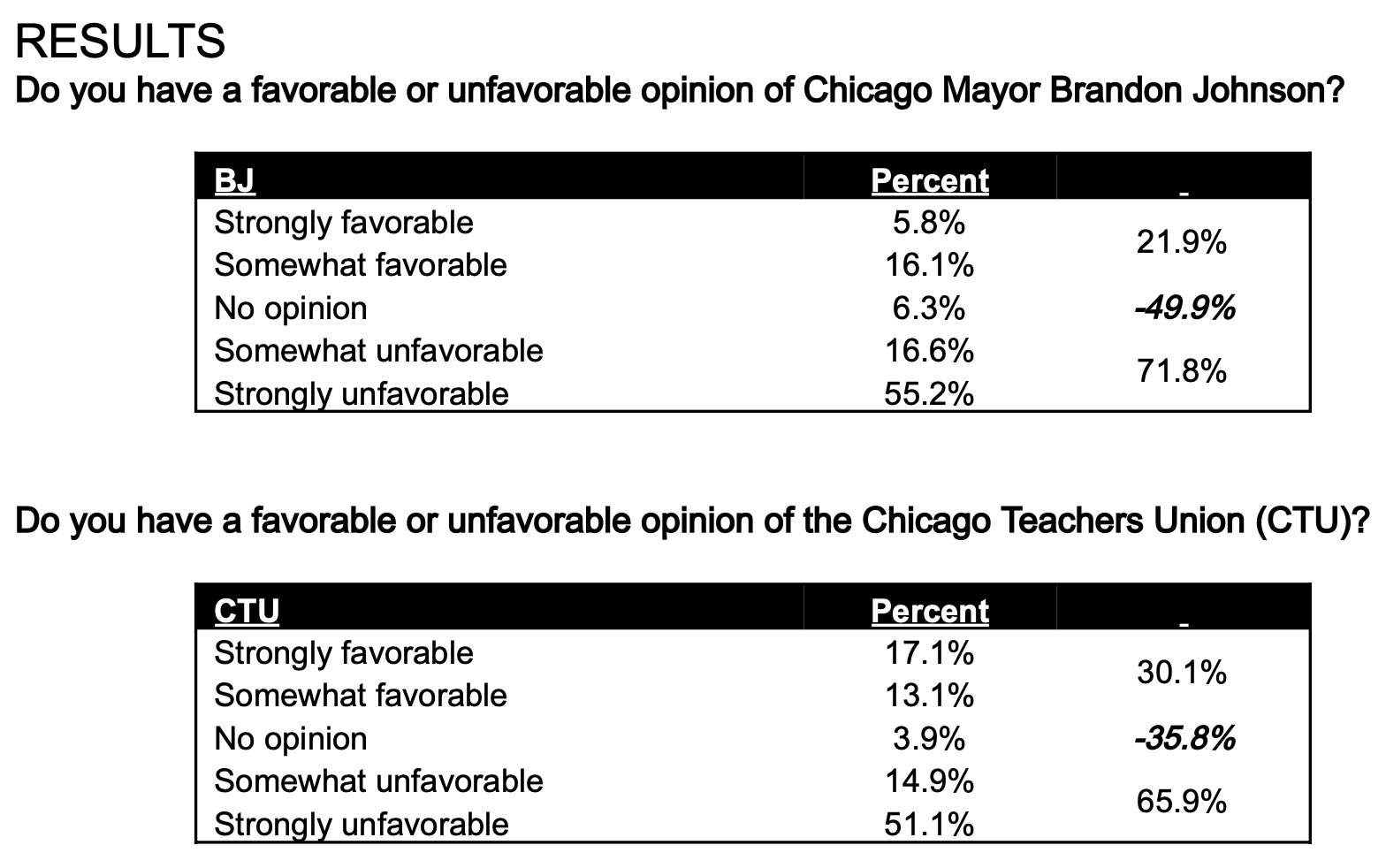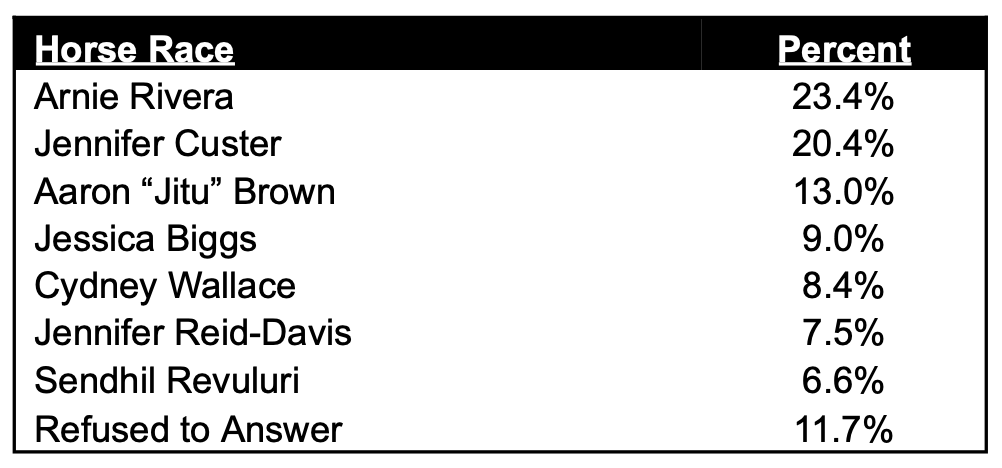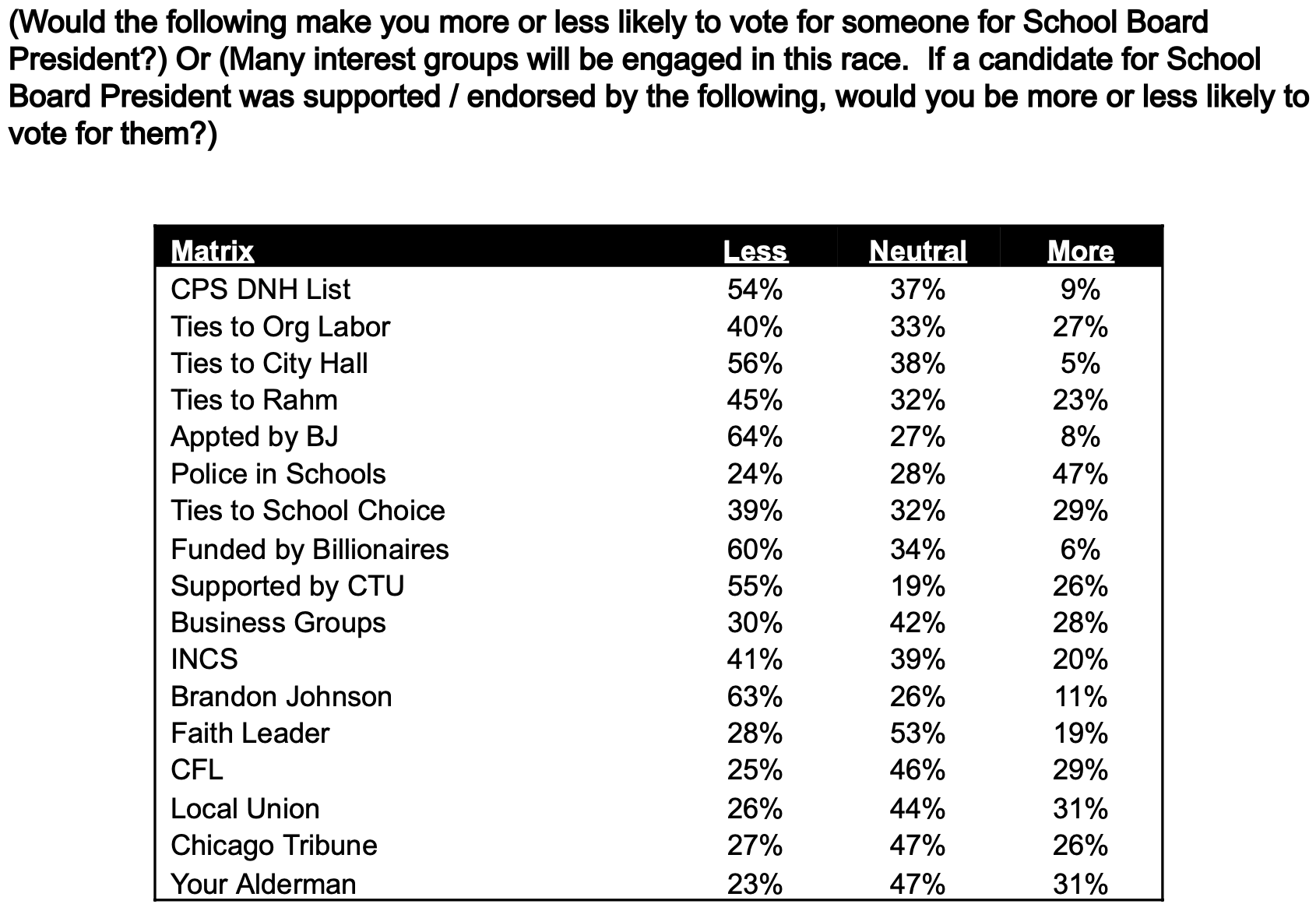Chicago Mayor Brandon Johnson (left) and Chicago Teachers Union President Stacy Davis Gates (right) both have high unfavorable ratings among voters, according to a new M3 Strategies poll. | https://www.ctulocal1.org/about; Wikimedia Commons / Fotografía oficial de la Presidencia de Colombia
Chicago Mayor Brandon Johnson (left) and Chicago Teachers Union President Stacy Davis Gates (right) both have high unfavorable ratings among voters, according to a new M3 Strategies poll. | https://www.ctulocal1.org/about; Wikimedia Commons / Fotografía oficial de la Presidencia de Colombia
A new M3 Strategies poll of 482 likely Illinois voters conducted on July 24-26 reveals widespread dissatisfaction with Chicago Mayor Brandon Johnson and the Chicago Teachers Union (CTU) as the city prepares for a pivotal school board president election in November 2026.
Voters expressed strong distaste for candidates backed by establishment figures such as Johnson, the ultra-wealthy and the CTU, each seen as polarizing and untrustworthy.
M3 Strategies summarized its findings.
“No single candidate has yet consolidated support, and endorsements or affiliations with major political or institutional actors are more likely to hurt a candidate than help, suggesting voters may be open to reform-minded or outsider candidates,” M3 Strategies wrote.
According to the survey, Johnson faces overwhelming disapproval among voters.
“Brandon Johnson has a net favorability of -49.9%, with 71.8% viewing him unfavorably, including a staggering 55.2% who view him strongly unfavorably,” the poll found.

Meanwhile, only 5.8% of respondents expressed a “strongly favorable” opinion of the mayor.
Similarly, the CTU, a powerful union in Chicago’s educational landscape, is deeply unpopular. The poll reports a net favorability of -35.8%, with “a majority (51.1%) view[ing] the CTU strongly unfavorably,” compared to just 17.1% who expressed strong favorability.
This pervasive negativity towards major political actors is reflected in voter attitudes about the upcoming race for Chicago School Board President.
The field remains fragmented, with no candidate commanding clear majority support.
Arnie Rivera leads with 23.4%, followed closely by Jennifer Custer at 20.4% and Aaron “Jitu” Brown at 13%. Brown made a racialized call for higher property taxes on Chicagoans to fund the school system despite its average cost per pupil being nearly double that of the rest of the state.
Notably, 11.7% of respondents refused to answer, underscoring voter indecision and volatility.

According to the poll, a growing number of Chicago voters and parents support school choice, signaling a preference for independence and reform.
When asked whether ties to school choice would influence their vote in upcoming school board elections, 39% of respondents said it would make them more likely to support a candidate, 32% said it would make no difference, and 29% said it would make them less likely.
Meanwhile, recent actions by Johnson and CTU leadership have raised concerns among families, as the two leaders are reportedly working to phase out selective enrollment and magnet programs, further limiting school choice. Johnson notably sends two of his own children to selective enrollment schools.
The most decisive issue tested was police presence in schools, with 47% of respondents more likely to support candidates who favor student resource officers, a direct rebuke of CTU and Johnson’s positions.
The poll revealed a particular skepticism from voters toward candidates affiliated with established political figures and institutions.
Endorsements appear to backfire rather than boost candidates’ chances.
For example, the data shows voters are “64% less likely to support” candidates appointed by Johnson, and “63% less likely” to support those endorsed by him.
Similarly, candidates “funded by billionaires” face a 60% drop in support, while those “supported by CTU” are 55% less likely to gain votes.
Even endorsements from historically influential figures like former mayor Rahm Emanuel offer limited help, with voters “45% less likely” to support such candidates.
The poll suggests that “ties to organized labor draw more skepticism (40% less likely) than enthusiasm (27% more likely).”
Conversely, voters responded more positively to local, pragmatic endorsements.
Endorsements from local aldermen, neighborhood unions and groups like the Chicago Federation of Labor garnered more favorable reactions.
Support from “your Alderman” made voters “31% more likely” to support a candidate, and local unions and business groups also received favorable marks.

The full poll, conducted via text-to-web among a representative sample with a margin of error of 4.46%, offers a snapshot of a highly competitive and unpredictable school board election landscape in Chicago. The poll surveyed a group of 482 likely voters in Illinois, with a majority identifying as Kamala Harris voters in the 2024 election (71.2%) and only 16% supporting Donald Trump.
The sample was majority female (51%) and included a range of ages, with the largest groups being voters aged 46–64 (37%) and 65+ (29.1%).
Ideologically, the respondents skewed left, with 47.2% identifying as somewhat or very liberal/progressive, compared to just 14% identifying as somewhat or very conservative.
Racially, nearly half (49.2%) of respondents identified as white, followed by Black (26%), Hispanic or Latino (14.5%) and smaller percentages identifying as Asian, mixed, or Native American.
Regionally, voters were concentrated on the North Side (30.8%) and Northwest Side (25.2%), with notable representation from the South Side (14.4%), Southeast Side (8.2%) and other areas of Chicago.
The demographic spread suggests a largely liberal, urban electorate with a high degree of political engagement, particularly among older and racially diverse residents.
The November 2026 Chicago Board of Education election stands out as a key battle over the future of Chicago’s public education. As an annual budget of nearly $10 billion and ideological control of the nation's second largest school district hang in the balance, the race is expected to unleash a bitter battle between union forces, political elites and reform-minded outsiders.
In 2024 Chicago began transitioning to a fully elected school board for the first time in its history, ending decades of mayoral control over Chicago Public Schools.
In November 2024, voters elected 10 board members from newly drawn districts, while the mayor appointed 10 additional members and a board president, with all positions, including school board president, becoming fully elected by 2026.
CPS employees, contractors, elected officials and non-citizens are notably barred from serving.
Johnson’s mayoral term is closely tied to the CTU. A longtime CTU organizer and lobbyist, he received strong union backing during his 2023 campaign.
Last year, rank-and-file CTU members filed a lawsuit alleging that CTU President Stacy Davis Gates improperly diverted millions in member dues intended for support into Johnson’s campaign without proper authorization or transparency.
Critics say this blending of funds violated union rules and fueled Johnson’s rise, earning him the nickname “Mayor CTU.”
Adding to concerns about union influence, Johnson replaced the entire CPS Board of Education last fall with CTU-aligned appointees after the previous board resigned en masse.






 Alerts Sign-up
Alerts Sign-up